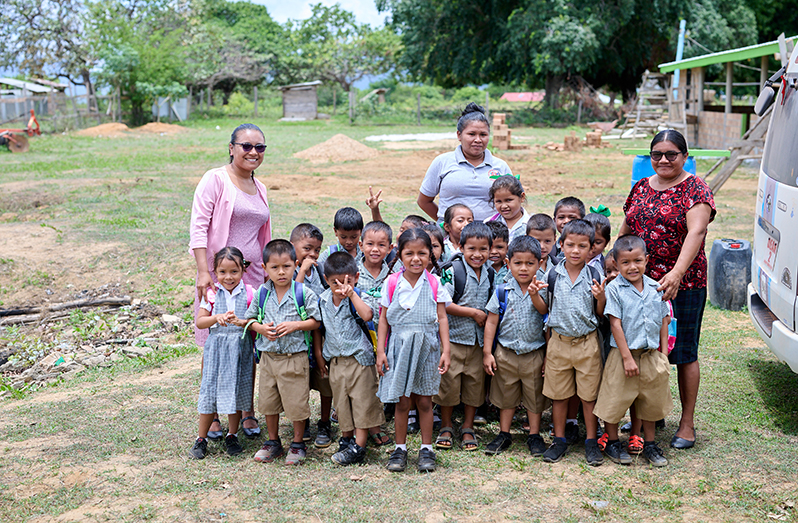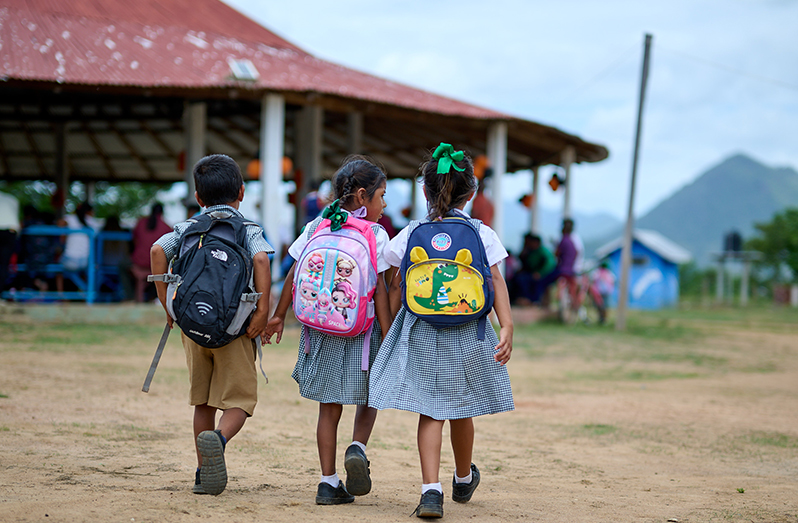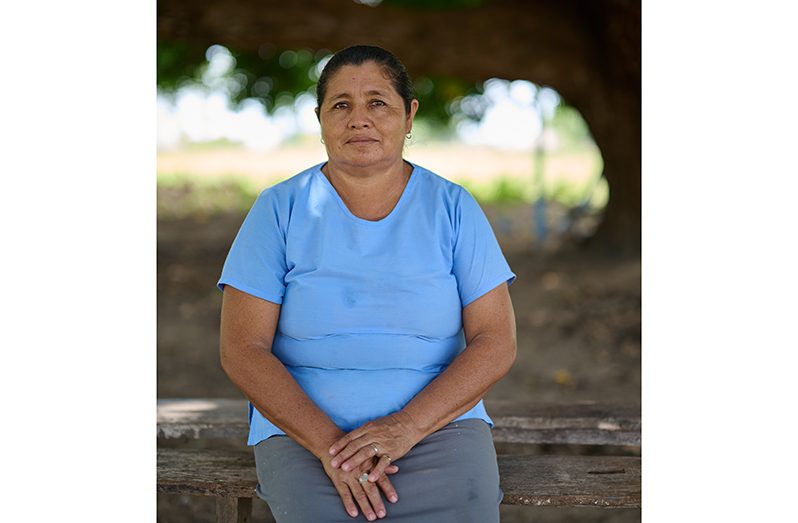How Shulinab’s Feeding Programme is helping shape the next generation.
IN the quiet village of Shulinab, South Rupununi, Rosanna Lewis starts her day before the sun fully rises. By 05:30 hours, she is already making her way to the community kitchen, ready to prepare the first meal of the day for the children of the village. For 13 years, she has been one of the dedicated cooks in the local feeding programme, ensuring that the youngest members of Shulinab receive nutritious meals every school day.
Shulinab is a traditional Macushi village surrounded by rolling savannahs and backed by the famed, majestic Kanuku Mountains. The community, like many others in the Rupununi, thrives on a mixture of subsistence farming, small-scale livestock rearing, and government-supported initiatives. It is a place where daily life is shaped by community values—where families rise with the sun, children walk to school in groups, and villagers come together to support one another.

Among the 425 villagers of Shulinab is Rosanna, whose commitment to the feeding programme has become a quiet but essential part of village life. The programme provides meals for approximately 100 children across the nursery and primary school levels, serving breakfast in the early morning and lunch in the afternoon. “Sometimes in the morning, we just get rushed for breakfast. The children ask for more, so we got to prepare more than we used to before,” Rosanna stated. The demand for meals continues to grow, a reflection of both the programme’s importance and Shulinab’s increasing population. In a village where many families rely on farming and occasional work, the feeding programme ensures that children have at least two solid meals each day.
Rosanna and the other cooks plan their menus in advance, making sure that every meal is balanced, nourishing, and a bit different from day to day. Breakfast is usually a simple but filling meal—perhaps farine with milk or porridge—while lunch features staples like rice, greens, and meat or fish. The goal, Rosanna says, is to provide the children with the energy they need to focus in class and stay active throughout the day.
Rosanna’s dedication to the programme is also personal. As a mother of seven, she understands the challenges of raising children in a remote village. Although most of her children are now grown, she remembers a time when providing for them was not always easy. “Raising kids in Shulinab was difficult. At that time, they never gave us cash grant. Now, they are giving, and I don’t have no more children,” she stated. Despite the struggles of the past, Rosanna ensured that her children received an education. Today, two of her sons are teachers, one is a health worker, another is involved in construction in Georgetown, and another lives in Lethem. Her youngest is still in school, and the income from her job in the feeding programme helps support her.
Rosanna’s journey as a cook began with a training programme years ago. “I just put myself to learn. First, we were on a training, and then I decided to put myself to help the children—to feed them good food, proper food,” she stated. When the school feeding initiative was introduced in the village, Rosanna and several of her friends stepped forward to take on the role. It was a natural decision—one that aligned with her values of service and community support.

Her daily routine is demanding. She wakes up before dawn, often skipping her own breakfast, to ensure that the children’s meals are ready on time. By 07:30 hours breakfast is served. After a brief break, she and the other cooks begin preparing lunch. Every day, they work with efficiency, knowing that their efforts directly impact the well-being of the village’s children. Shulinab, like many Indigenous communities in the Rupununi, is changing. Government projects have introduced new infrastructure, and opportunities for young people are growing. Rosanna acknowledges these developments but believes that the sense of community remains strong. “There are buildings coming up—the government giving them their projects and so forth. That’s what they’re trying to do with it,” Rosanna stated.
While change is inevitable, the heart of Shulinab still beats, in the same way, it always has—with communal support and traditions at its core. The school feeding programme is just one example of this, ensuring that no child goes hungry and that education remains accessible to all. For Rosanna, the work is more than just a job—it’s a way of giving back to the community that raised her.
Rosanna hopes that the feeding programme will continue to expand, reaching even more children in need. At 51, Rosanna has no plans to slow down. Her hands, which have prepared thousands of meals over the years, continue to work with care and purpose. Whether she’s stirring a pot of porridge at dawn or serving a plate of steaming rice at noon, she intends to continue serving her community.




.jpg)









